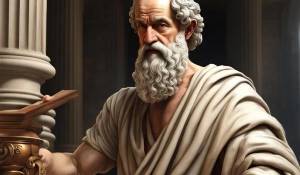Pythagoras, one of the earliest known mathematicians, was born on the Greek island of Samos around 570 BCE. He is most famously known for the Pythagorean Theorem, which states that in a right-angled triangle, the square of the hypotenuse is equal to the sum of the squares of the other two sides. This theorem remains fundamental in geometry today and has applications in fields ranging from physics to engineering.
However, Pythagoras' contributions extended beyond this theorem. As a young man, he traveled extensively, studying under the priests of Egypt and possibly under Babylonian scholars. These travels influenced his beliefs, which integrated mathematics, philosophy, and religion. Pythagoras eventually settled in Croton, Italy, where he established a school that became known as the Pythagorean Brotherhood. This school combined mathematical studies with a unique philosophy that emphasized the mystical properties of numbers.
Pythagoras believed that numbers were the essence of all things and that the universe could be understood through mathematical relationships. His followers explored concepts such as the properties of odd and even numbers, perfect numbers, and the mystical qualities of specific numbers. They also made strides in understanding the harmonic properties of sound, discovering that musical intervals are based on simple ratios between numbers, an idea that laid the foundation for the study of acoustics.
Though little of Pythagoras' original work survives, his influence is undeniable. His ideas were foundational to later Greek philosophers like Plato and Aristotle, and his school’s work helped shape Western philosophy and mathematics. Pythagoras' belief in the interconnection between mathematics and the physical world remains influential today, and the Pythagorean Theorem is still taught to students around the world.
















